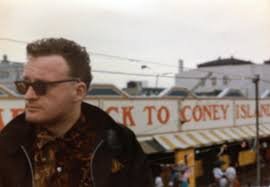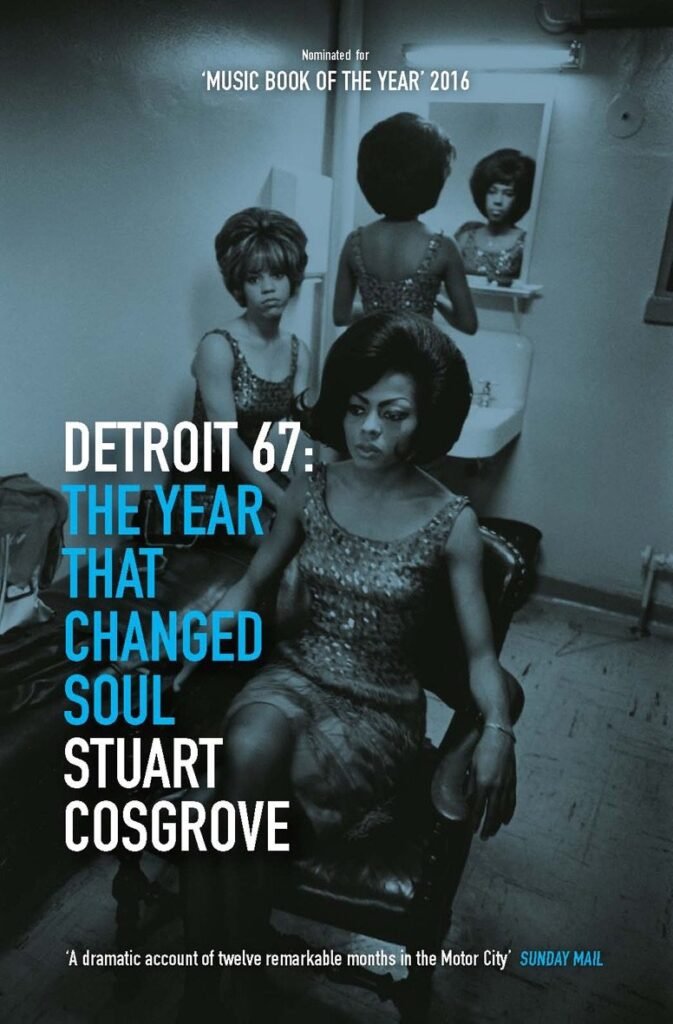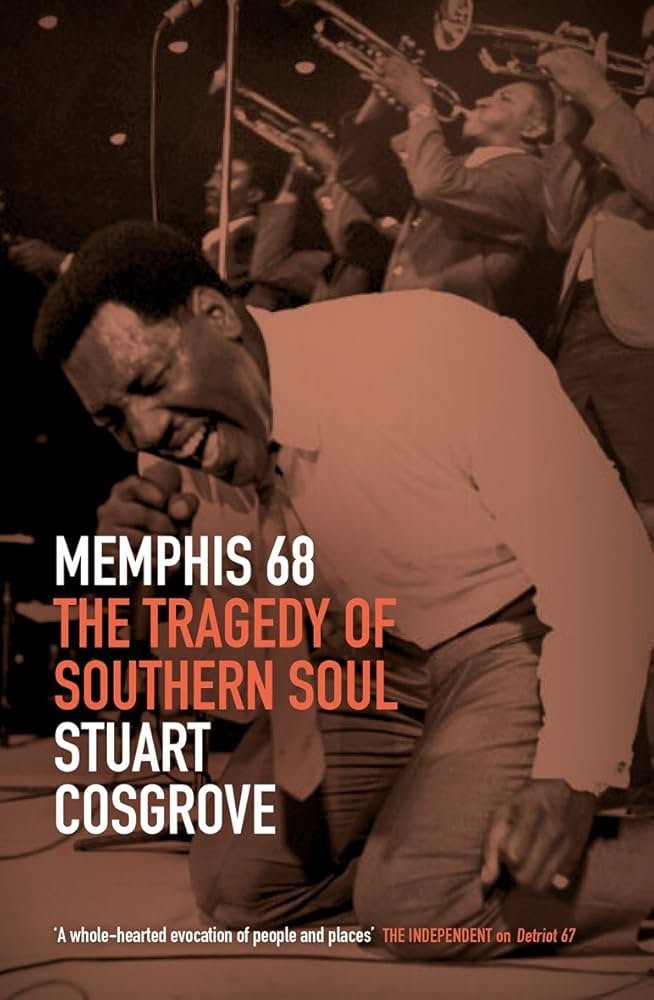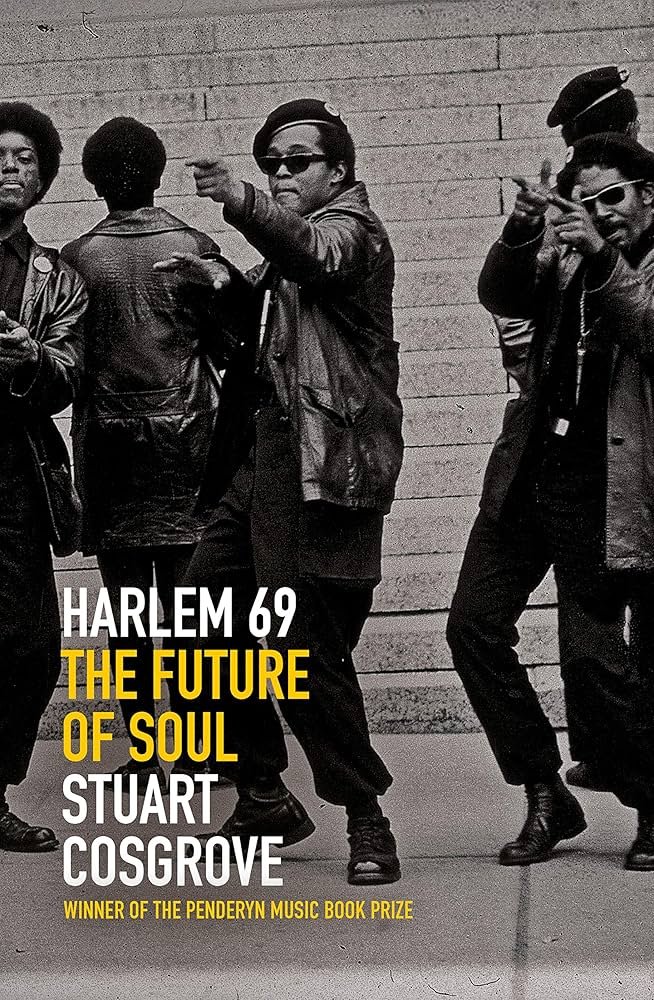
Stuart Cosgrove is one of those rare figures who can thread the needle between cultural historian, broadcaster, and street-level storyteller. Born in Perth, Scotland, and coming of age in the restless decades when soul, funk, and disco reshaped global culture, Cosgrove never treated music as background noise. For him, Black music has always been a living archive of resistance, joy, and community — the very fabric through which history is told. Whether you first heard him breaking down records on BBC Radio Scotland or came across his words in the pages of The Face, you quickly learned that his journalism carried a certain cadence: equal parts crate-digger obsession, sociopolitical insight, and a love letter to the overlooked voices of the culture. In recent years, Cosgrove has emerged as one of the UK’s most essential chroniclers of American soul history, crafting a trilogy of books that read like soundtracks to turbulent times, where every horn stab or gospel refrain is in conversation with politics, protest, and the shifting city streets.

With a background that includes roles at NME and The Face during the 1980s, Cosgrove’s passion for soul music is deeply rooted. His involvement in the Northern soul scene as a fanzine writer and later as a staff writer for Black Echoes showcases his dedication to the genre. This profound connection culminated in his ambitious trilogy: “Detroit ’67: The Year That Changed Soul,” “Memphis ’68: The Tragedy of Southern Soul,” and “Harlem ’69: The Future of Soul.” These works not only delve into the music but also explore the socio-political landscapes that shaped these pivotal years. He isn’t just writing about records; he’s writing about the lives that birthed them, reminding us that the story of soul is, at its core, the story of survival.
Embarking on this trilogy was no small feat. Cosgrove’s meticulous research involved sifting through countless records, interviews, and historical documents. He faced the challenge of intertwining the rich tapestry of soul music with the complex social upheavals of the late 1960s. Readers have praised his dedication, with one noting, “It is a work of history after all, well-researched and highly entertaining, but written in an easy to access, everyday style.”

“Detroit ’67: The Year That Changed Soul” serves as the opening act of the trilogy. Set against the backdrop of a city embroiled in racial tensions and riots, the book chronicles how these events influenced the Motown sound. Cosgrove delves into the stories of iconic artists like The Supremes and Marvin Gaye, illustrating how their music echoed the cries for change. He writes, “A summer of street-level rebellion turned Detroit into one of the most notorious cities on earth, known for its unique creativity, its unpredictability and self-lacerating crime rates.”

In “Memphis ’68: The Tragedy of Southern Soul,” Cosgrove shifts focus to the heart of the South. The assassination of Dr. Martin Luther King Jr. in Memphis serves as a pivotal moment, deeply affecting the soul music scene. The book examines the struggles of Stax Records and the artists who sought to navigate a city in mourning. A reviewer reflects, “For those of us who have revered 60s soul music for most of our lives… this is a must-read piece of work which gives a sobering account of the era.”

Concluding the trilogy, “Harlem ‘69: The Future of Soul” transports readers to New York City. Here, Cosgrove explores the fusion of soul, jazz, and the burgeoning funk scene. The narrative introduces figures like Donny Hathaway and the influence of cultural hubs such as the Apollo Theater. The Guardian highlights the book’s depth, stating, “Fascinating musical byways abound in the last part of a doggedly researched trilogy charting the history of late 60s soul.”
Cosgrove’s trilogy stands as a monumental contribution to music literature, seamlessly weaving the threads of melody and history. For anyone passionate about understanding the profound interplay between soul music and societal change, these books are indispensable. Dive into this soulful journey and experience the rhythm of a transformative era.

Stuart Cosgrove — Bibliography (Music-related)
• Detroit 67: The Year That Changed Soul (2015)
• Memphis 68: The Tragedy of Southern Soul (2017)
• Harlem 69: The Future of Soul (2019)
• Young Soul Rebels: A Personal History of Northern Soul (2016)
• Cassius X: A Legend in the Making (2020) — not strictly music, but intersects with Black culture and the backdrop that influenced soul.
• Hey America!: The Epic Story of Black Music and the White House (2021)

